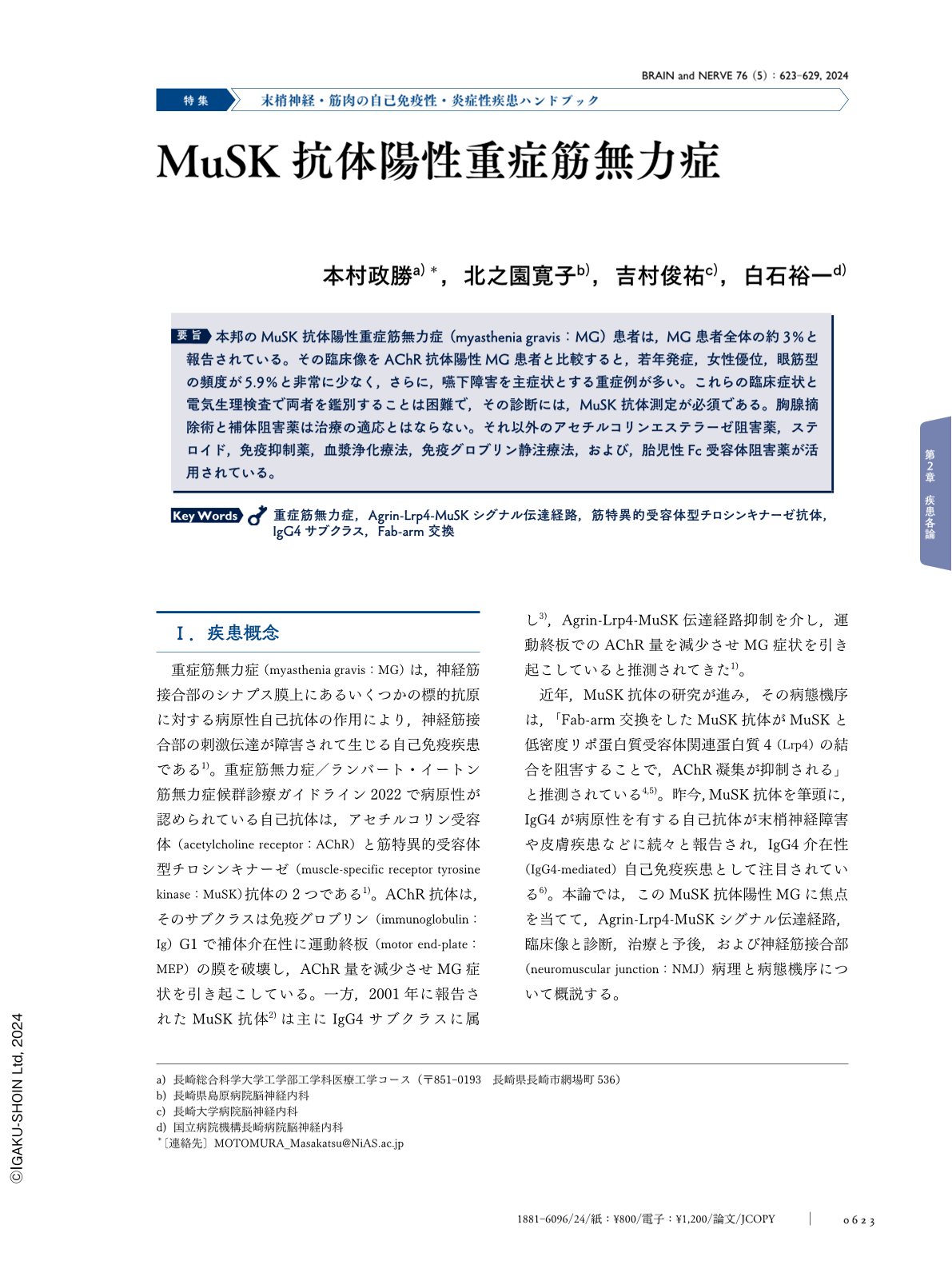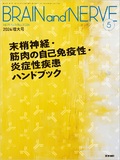Japanese
English
- 有料閲覧
- Abstract 文献概要
- 1ページ目 Look Inside
- 参考文献 Reference
本邦のMuSK抗体陽性重症筋無力症(myasthenia gravis:MG)患者は,MG患者全体の約3%と報告されている。その臨床像をAChR抗体陽性MG患者と比較すると,若年発症,女性優位,眼筋型の頻度が5.9%と非常に少なく,さらに,嚥下障害を主症状とする重症例が多い。これらの臨床症状と電気生理検査で両者を鑑別することは困難で,その診断には,MuSK抗体測定が必須である。胸腺摘除術と補体阻害薬は治療の適応とはならない。それ以外のアセチルコリンエステラーゼ阻害薬,ステロイド,免疫抑制薬,血漿浄化療法,免疫グロブリン静注療法,および,胎児性Fc受容体阻害薬が活用されている。
Abstract
Reportedly, patients with muscle-specific kinase (MuSK) antibody-positive myasthenia gravis (MG) account for approximately 3.0% of all patients with MG in Japan. Compared with patients who have acetylcholine receptor antibody-positive MG, those with MuSK antibody-positive MG show young-onset disease with female predominance, a low rate of ocular involvement (5.9%), and greater severity of dysphagia. The aforementioned types of MG are indistinguishable based on clinical symptoms and electrophysiological tests, and measurement of MuSK antibodies is essential for diagnosis. Thymectomy and complement inhibitors are not indicated for treatment, and acetylcholinesterase inhibitors, steroids, immunosuppressants, plasma exchange, intravenous immunoglobulin therapy, and neonatal Fc receptor inhibitors are used.

Copyright © 2024, Igaku-Shoin Ltd. All rights reserved.


